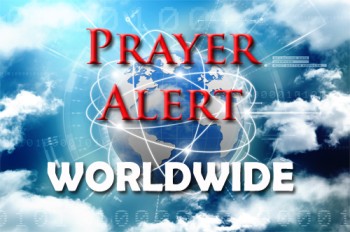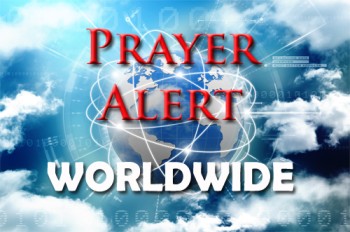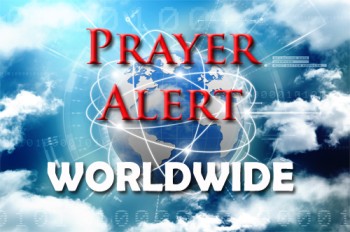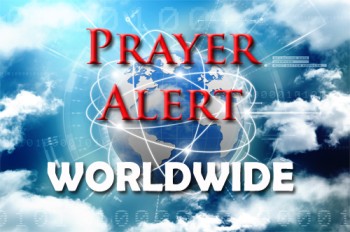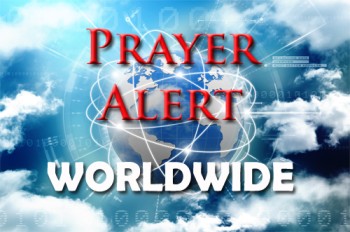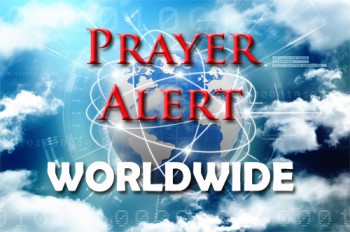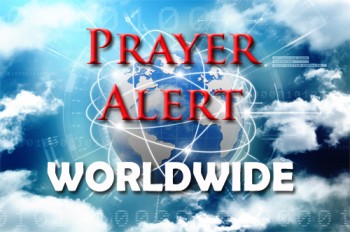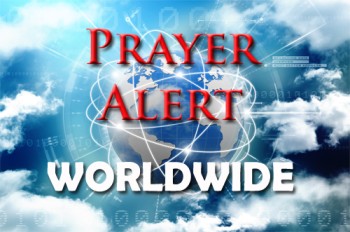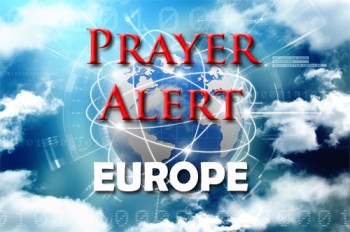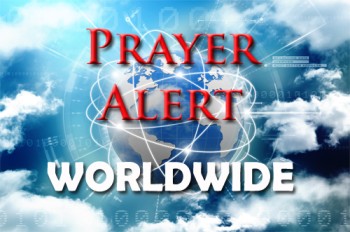Displaying items by tag: Africa
Uganda: vaccine trial against Ebola
Uganda, in partnership with the WHO and other health organisations, has launched its first-ever vaccine trial for the Sudan strain of Ebola. The trial began just days after a nurse succumbed to the virus, with additional cases confirmed among his relatives. Researchers at Makerere University and the Uganda Virus Research Institute expedited the process, ensuring compliance with ethical and regulatory standards. The candidate vaccine, donated by IAVI and funded by international partners, aims to improve pandemic preparedness. Over 2,000 doses are available, though the manufacturer remains undisclosed. Uganda has a history of Ebola outbreaks, including a deadly 2000 epidemic. Contact tracing remains essential in containing the disease. This outbreak comes amid US funding freezes following the Trump administration’s withdrawal from the WHO. The region has also faced recent outbreaks of Marburg virus in Tanzania and Rwanda. Officials hope the vaccine will be a breakthrough in combating future Ebola epidemics.
DRC: fighting between army and Rwandan-backed rebels
Fighting persists between the Congolese army and M23 rebels in Goma, in the east of the Democratic Republic of Congo (DRC), leaving control of the city uncertain. The M23, which according to the UN is supported by thousands of Rwandan soldiers, claims to hold the provincial capital, though Congolese authorities dispute this. Rebel patrols have been reported in western Goma, while Congolese forces are reportedly guarding the airport. With independent access to parts of the city restricted and communication infrastructure disrupted, reliable updates are scarce. The fighting has forced thousands of civilians to flee. The volatile region is rich in minerals that are critical to much of the world’s technology. Kenyan president William Ruto, describing the situation as ‘very complicated’, said that it could only be solved diplomatically: see
Tanzania: opposition party elects new chairman
Tundu Lissu has been elected chairman of Tanzania’s main opposition party, Chadema, ousting Freeman Mbowe, who had led the party for over twenty years. Lissu won a tightly contested election with 51.5% of the vote, campaigning on promises of change and stronger opposition to the ruling CCM party. Mbowe emphasised his record of strengthening the party and accepted the results graciously. Lissu, a vocal critic of the government, survived a 2017 assassination attempt and lost the presidential election in 2020 to John Magufuli. He has accused Magufuli’s successor, Samia Suluhu Hassan, of repression, and strongly spoken out against human rights violations and recent abductions and disappearances of citizens, including opposition officials. He and other colleagues have been arrested in recent months amid a government crackdown on opposition demonstrations. His leadership signals a shift towards a bolder opposition stance ahead of the October presidential elections.
Sudan: shelling kills at least 120
On 13 January at least 120 people were killed by indiscriminate shelling in Omdurman, with the death toll expected to rise. Sudan's civil war, between the army and the paramilitary RSF, began 21 months ago. It has claimed tens of thousands of lives, displaced over twelve million, and left the country on the brink of famine, described by the UN as a humanitarian disaster. Both sides have been accused of indiscriminately targeting civilians, including health workers, as fighting devastates Omdurman and neighbouring areas. Volunteers face severe challenges in accessing affected regions, and medical supplies are critically low. Recent weeks have seen the army intensify efforts to reclaim territory, seizing areas and confiscating weapons, while the RSF counterattacks. The recent skirmishes have forced emergency response rooms, which support local communities, to shut several health centres, affecting provision of medical services to thousands of residents.
South Africa: rescue operation at besieged illegal gold mine
A rescue operation is under way at a gold mine which has been under police siege since Aug as part of a government initiative targeting illegal mining, an industry valued at 60 billion rand a year. The siege, which included cutting off food and water, drew criticism from human rights organisations. In December a court ruled that volunteers could send down supplies to the trapped men, and recently ordered the state to launch a rescue operation. Rescuers, using metal cages to recover people from depths of over 2,000 metres, have now recovered 78 bodies and 216 survivors, who face charges of illegal mining, trespassing, and immigration violations. Miners' rights groups report that hundreds more survivors and dozens of bodies remain underground.
Mozambique: post-election violence, calls for peace
Violence has gripped Mozambique following disputed elections on 9 October; the situation worsened after Daniel Chapo was officially declared president on 23 December. Adding to the feeling of insecurity, on Christmas Day over 1,500 prisoners escaped from a maximum-security prison in Maputo. Violence, deaths, and looting have driven thousands to flee to Malawi and Eswatini, straining resources when those countries are already grappling with drought and poverty - and the aftermath of Cyclone Chido, which devastated the region. In northern Mozambique, ongoing attacks in Cabo Delgado since 2017 have already displaced hundreds of thousands. Refugees face dire conditions in overcrowded shelters, with inadequate food, water, and sanitation, raising the risk of disease. Christian organisations are mediating peace efforts and engaging in prayer: Tearfund has joined their call for dialogue and reconciliation, urging Christians worldwide to pray for peace in Mozambique and relief for the displaced.
Mayotte: aftermath of Cyclone Chido
France has intensified relief efforts in Mayotte, with 120 tonnes of food scheduled for distribution. The Indian Ocean archipelago, France's poorest territory, has been under a curfew due to looting and lawlessness following Cyclone Chido’s destructive landfall. Thousands of residents in the capital Mamoudzou are working to repair their homes, while entire communities in the shantytowns have been destroyed. Although the cyclone, the most powerful in ninety years, has led to numerous deaths, with hundreds feared dead, only 22 fatalities have been confirmed due to the inaccessibility of many areas. The situation is further complicated by uncertainty around the population size, with many undocumented migrants from Comoros and Madagascar. Health experts say they are bracing for a surge of disease as dead bodies lie unrecovered and people struggle to access clean drinking water.
Nigeria: authorities seek to combat oil theft
In the Niger Delta, rampant oil theft continues to threaten local livelihoods and the national economy. Armed groups siphon crude oil from pipelines in the region, often operating with impunity and even security cover. These activities cause environmental devastation, health crises, and economic losses. In 2022, Nigeria lost $23 billion to oil theft, so that it lost its position as Africa's top oil exporter. The authorities are committed to fighting this problem by deploying gunboats, engaging vigilantes, and supporting the navy. Increased oil production, now averaging 1.8 million barrels per day, has been attributed to these efforts. However, poverty and unemployment continue to drive pipeline vandalism. Nigeria's inflation rate, worsened by a devalued naira, remains high, but there is official optimism that rising oil output will stabilise the economy.
France: author guilty of downplaying Rwandan genocide
French-Cameroonian author Charles Onana has been found guilty of downplaying the Rwandan genocide, which resulted in the deaths of approximately 800,000 people in 1994. He was fined €8,400, and his publisher was fined €5,000. The two must also pay €11,000 in compensation to human rights organisations which filed the lawsuit. A Paris court ruled that Onana’s book, published in 2019, trivialised and contested the genocide in an ‘outrageous manner’, violating France's laws against genocide denial and incitement to hatred. The book suggested that the narrative of a planned genocide by the Hutu government was a ‘scam’, a claim criticised for distorting historical facts. Rwanda's foreign minister has welcomed the court’s decision as a victory. This is the first time in Europe that those denying the genocide have been punished under French law.
Uganda: mental health crisis at refugee camps
The mental health crisis at Kiryandongo refugee camp is escalating, with suicides and suicide attempts surging. Between January and October 2024, 41 suicides and over 130 attempts were recorded, highlighting the profound psychological distress faced by refugees. Many are haunted by memories of past trauma, such as bombings. These ongoing fears disrupt daily life and contribute to widespread mental health struggles. Despite the existence of psychosocial support programs, resources at the camp are insufficient to meet the overwhelming demand. With over 1.7 million refugees in Uganda, local healthcare services are under immense pressure, but specialised care is often inaccessible due to high costs. The UNHCR is calling on governments, the private sector, and international donors to increase funding for mental health programs to address this urgent need.
